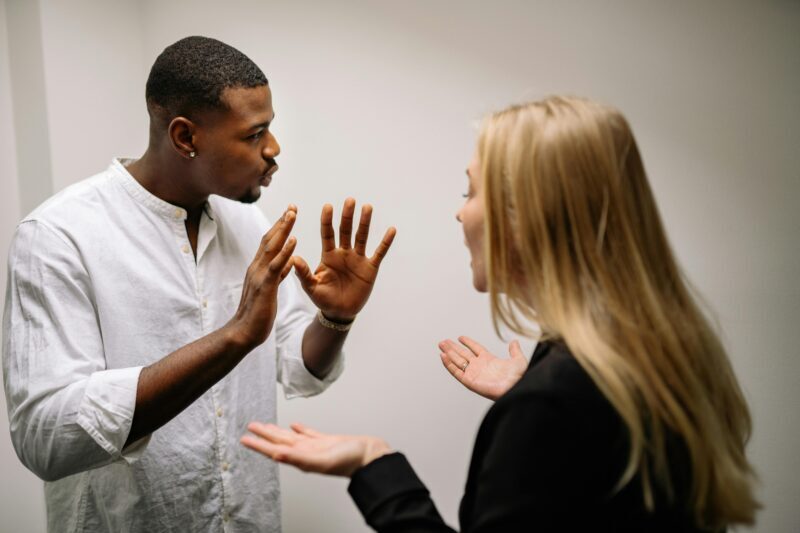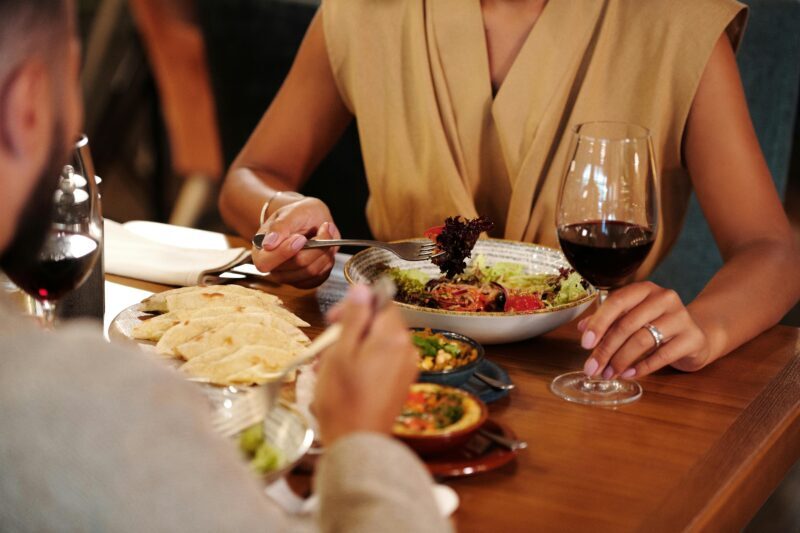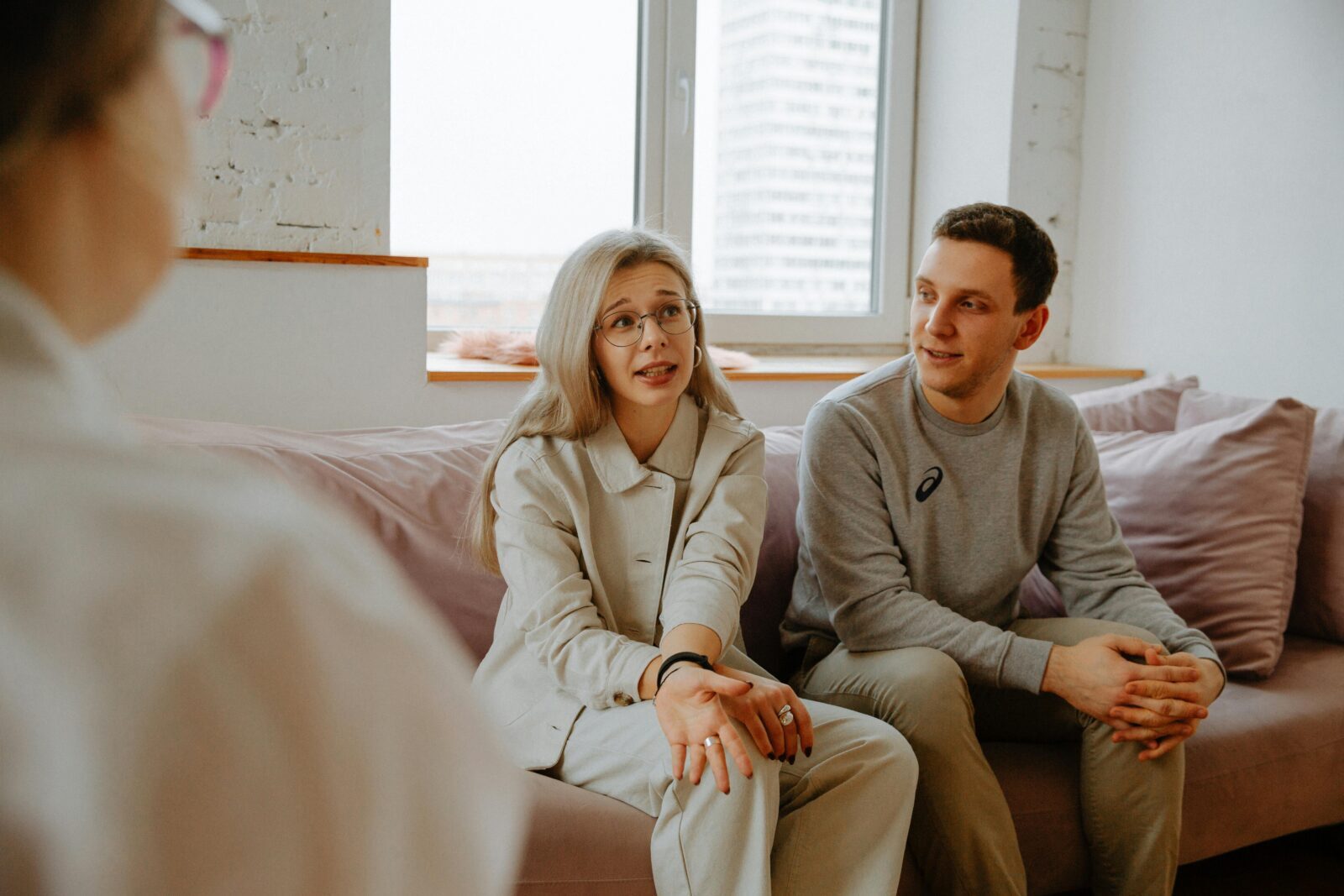Relationships aren’t always smooth sailing. Certain factors, whether internal or external, can affect couples. When issues arise in a relationship, it’s important to address them as early as possible to prevent them from escalating into bigger problems.
Below, we explore 10 of the biggest signs that couples might benefit from counselling. We also explain how you can access counselling, work to resolve conflict, improve communication, and strengthen your relationship.
What is couples counselling?
Couples counselling is a form of therapy. It helps couples to reconnect, understand their relationship dynamics, resolve conflicts, and improve their communication skills. It’s done in a safe and supportive environment with the guidance of a trained professional.
Why do couples need counselling?
Sometimes, couples need support to work on distress in their relationships or to determine a path forward. Many factors can lead to stress in relationships. They include:
- Troubles with communication
- Difficulties with managing conflict
- Emotional disconnection
- Difficulties with understanding
- Trust-related issues
- Financial stress
- Life transitions
- And more.
Signs you might need couples counselling
If you’ve felt a shift in your relationship and are wondering whether you could benefit from couples counselling, here are 10 of the biggest signs you might need couples counselling.
Communication challenges
This is probably one of the biggest signs of distress in a relationship. Some of the underlying factors that can contribute to communication challenges in a relationship include frequent misunderstandings, emotional barriers, and difficulty listening to others.
Increased arguments
If your arguments have increased in frequency or intensity, this might be a sign that it’s time for couples counselling. This can help you address the causes behind the conflict and identify techniques to navigate your disagreements in better ways.

Emotional withdrawal
Emotional withdrawal can look like one or both parties becoming disengaged, unresponsive or distant. Someone who is acting more withdrawn might look as if they’re shut off.
Lack of trust
Healthy relationships should be built on trust. However, building or rebuilding trust, especially after it’s broken, can be challenging to repair. If something has happened in your relationship to cause distrust in the other person, therapy can provide an environment for you to address your issues and determine a path forward.
Commitment difficulties
Commitment in a relationship should be mutually exclusive. They might look like one person avoiding future conversations or plans. They might also become emotionally distant from the other person, unpredictable or always appearing to focus on the negative.
Changes in intimacy
This might look like a significant decrease or mismatch in physical or emotional intimacy. If you and your partner have noticed a shift in intimacy, or feel more distant from each other, you might consider couples counselling to resolve any underlying factors and to develop strategies to rebuild a connection.
Infidelity issues
Relationships that have experienced infidelity issues can create intense pain for one or both parties. If you or your partner has been unfaithful, counselling might help you to determine the future for your relationship.
Parenting issues
It’s not uncommon for different parenting styles to cause conflict in a relationship. People have different parenting styles and sometimes our own upbringing can influence how we choose to parent our children. If you and your partner parent children differently or are struggling to come to parenting related agreements, you might benefit from couples counselling.
Issues stemming from other aspects of life
When life transitions happen, whether that’s grief, parenthood, work or financial related, it can sometimes put a strain on couples and their relationships. If you and your partner are facing challenges in your lives together, you might consider reaching out for support from a counsellor or therapist.
Simply thinking about counselling
Even if you’re simply thinking about couples counselling, there might be an underlying root cause that you might wish to address. We’d consider taking steps to seek support to determine what that might be.
Tips for improving your relationship
There are many things that you can do to help improve your relationship within your home, including:
- Finding open and honest ways to communicate with one another
- Active listening. This means giving your partner your full attention when they speak and demonstrating that you’re listening
- Showing them appreciation
- Finding ways to prioritise quality time with one another
- Finding shared interests to do together
- Finding constructive ways to resolve conflict
- Practicing forgiveness
- Learning to let minor issues go
- Acknowledging the other person’s perspective
- Setting healthy boundaries
- Celebrating your achievements.

Next steps
If you’re thinking about counselling for you and your partner, the first step is to have an open conversation with them about the idea. It’s important to choose the right time and place to have that conversation and to think about what you would like to say. In an earlier blog, ‘How to approach your family about family counselling,’ we explain how you can do this.
Once you’ve had the conversation and your partner is on board, take some time to research certified counsellors who specialise in family and relationship counselling, then reach out to book a time to chat with them.
Anglicare’s Family Counselling services
We provide family and relationship counselling to couples and families across Moreton Bay, Brisbane and Ipswich. To learn more about our programs, click here. Alternatively, to chat to a member of our team about your options, call 1300 114 397.
